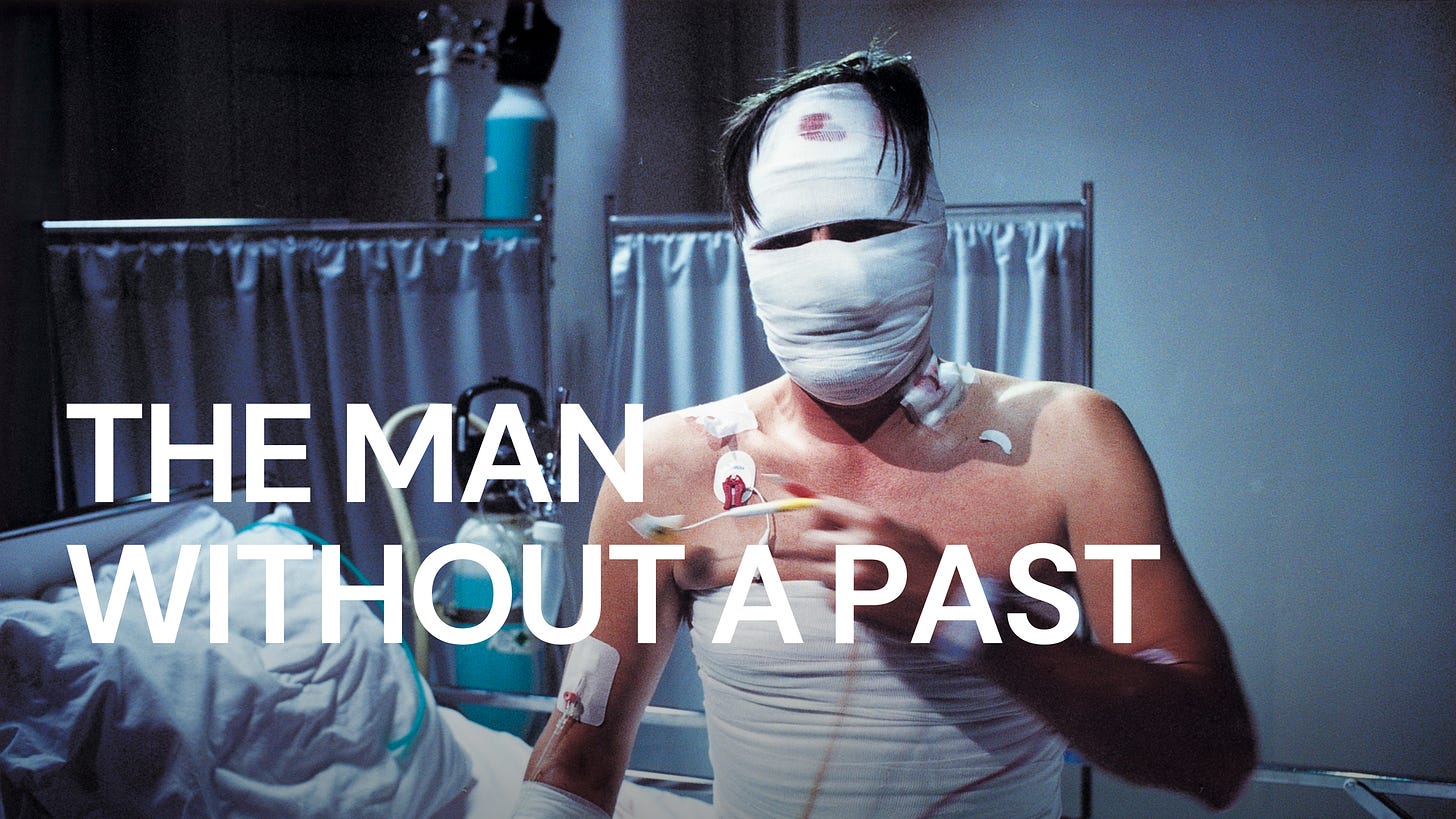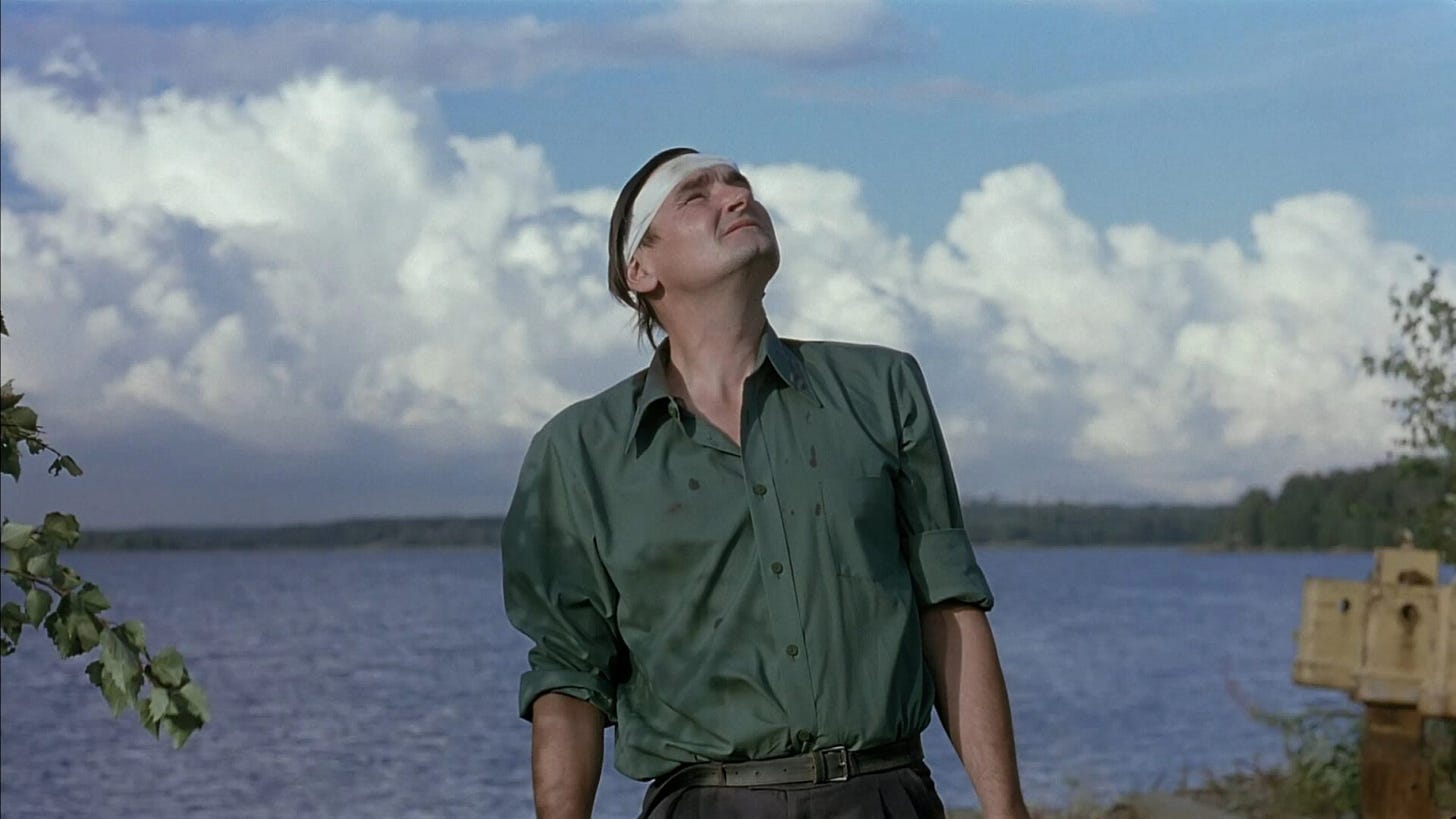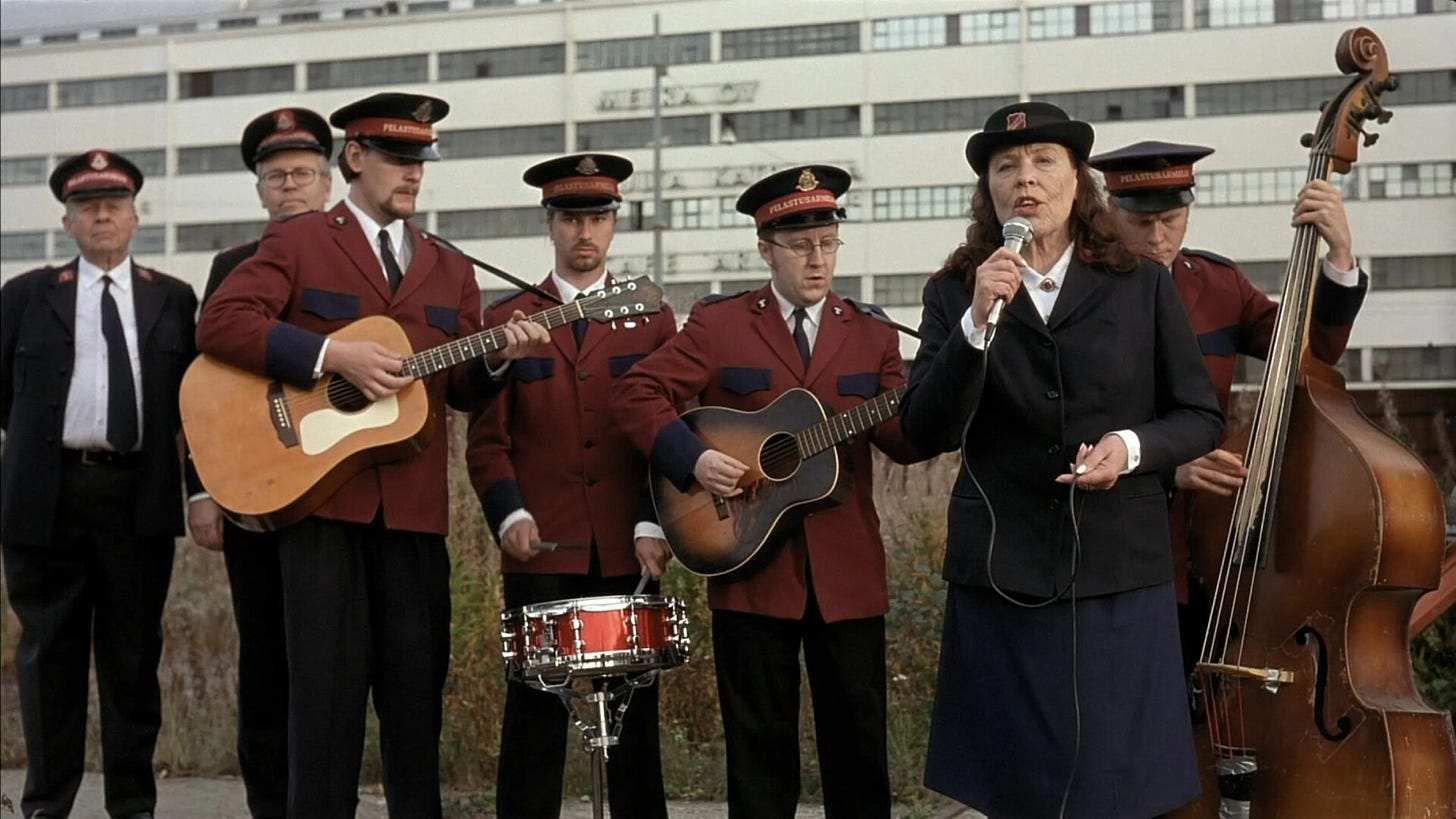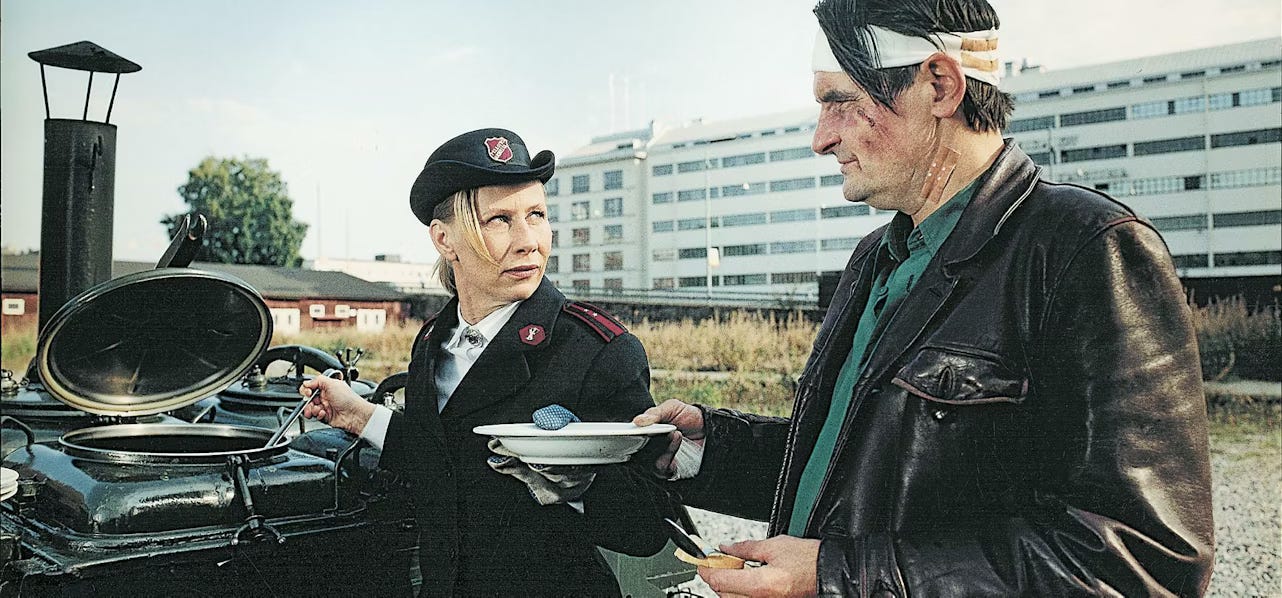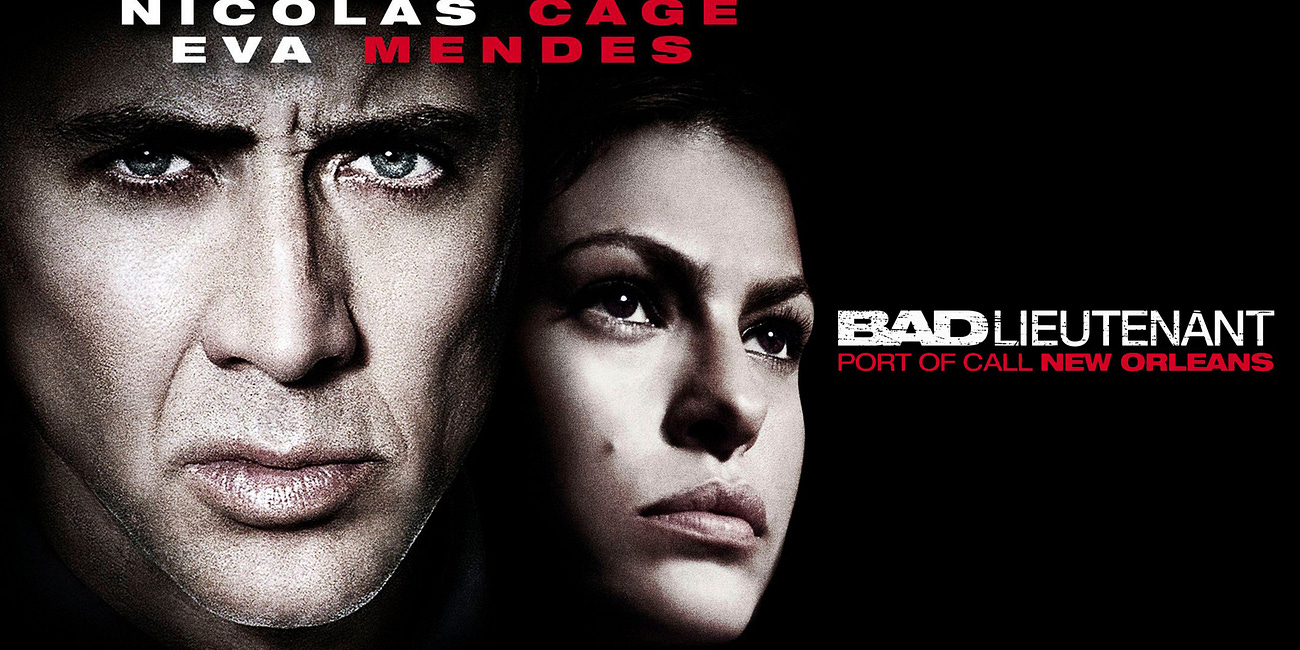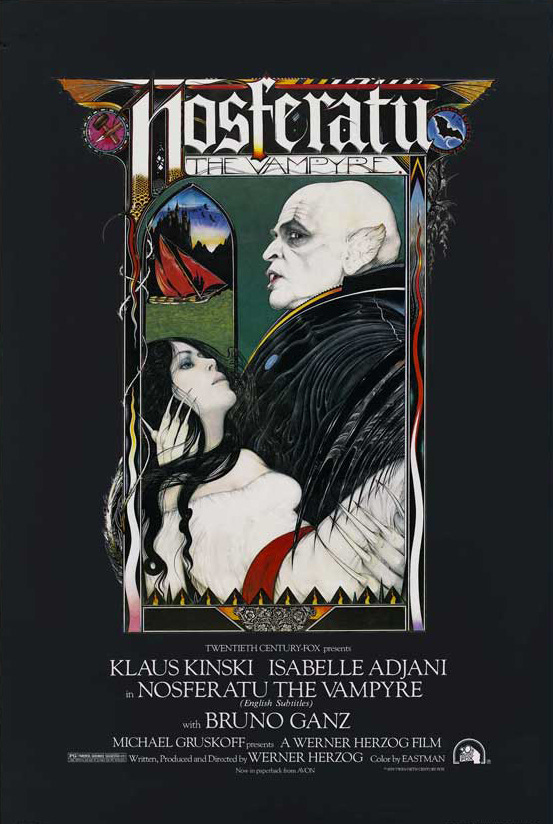Directed by Aki Kaurismäki
Finland, 2002
Two Finns are in a bar. After hours of silence, one man raises his glass to the other and says, “Cheers”. The other man snaps back, “I didn’t come here for conversation.” – A Finnish joke.
A man is on a train to Helsinki. On arrival, he is brutally beaten and robbed by a gang of ‘middle-aged’ youths. We find him lying unconscious in a hospital bed, his head wrapped in bandages. Things aren’t looking good, as the doctor intones:
Perhaps it's better this way than a life as a vegetable…
His pulse stops and he is pronounced dead. But the man wakes up and leaves hospital. He has global amnesia:
My head is damaged somehow. I don’t even remember who I am.
Let us call him M, as he is named in the credits. M is taciturn, affectless, and inert. But this is no consequence of his brain injury, as so is everybody else. Welcome to the world of Aki Kaurismäki, the director of this week’s film: The Man Without a Past. The Finnish filmmaker is one of those directors whose style is immediately recognisable. He casts a sardonic eye over the absurdities of human existence, although the deadpan, static acting and the mordant one-liners that typify his work place him closer to Jacques Tati than Samuel Beckett (see Endgame). And yet, those one-liners often reveal eternal, underlying truths.
So, M stumbles out of the hospital swathed in bandages like the Mummy, and with broad shoulders and a halting gait that bring to mind Frankenstein’s monster. He collapses by an industrialised riverbank. Having lost not only his identity, but all of his possessions, his future is looking bleak until he is rescued by a local family. A family so poor that they live in an old shipping container.
It turns out that they are part of a community, a community of the marginalised and the destitute, but a community all the same. They nurse M back to health and find him a shipping container of his own. An electrician rigs up a power supply and installs a discarded jukebox. When M offers to pay, the response is typical Kaurismäki:
M: What do I owe you?
Electrician: If you ever find me face down in the gutter, turn me around to my back.
M has acquired a home and a circle of friends. And gradually, subtly, you notice that the flat, grey palette of the film’s frame starts to show signs of colour. M develops a habit of offering gnomic advice and turns the Salvation Army band – they host a local soup kitchen – into a rhythm and blues combo that covers The Renegades. If The Renegades are new to you, that’s not really surprising. Hailing from Birmingham, in the 1960s they set sail for Finland where they sparked their own version of Beatlemania. Music is crucial to the films of Kaurismäki, often functioning as it would in a musical, commenting on the lives of the characters. The first disc played on M’s jukebox is Crawling Blues by Blind Lemon Jefferson. What’s not to like?
The musical references in The Man Without a Past are as eclectic as the cinematic quotations. Markku Peltola plays our hero with a stolid stoicism that brings to mind Buster Keaton. Penniless, in a café he orders just a cup of hot water, then pulls an old used teabag from a matchbox. And in an obvious nod to the musical Guys and Dolls M falls in love with Irma, a Salvation Army officer played by Kaurismäki regular, Kati Outinen, an actor whose eyes have a sadness that suggests she reads Schopenhauer for pleasure.
More unexpectedly, Kaurismäki weaves in the visual language of Douglas Sirk’s 1950s melodramas during the film’s few romantic moments. These scenes, complete with lush orchestral strings and Technicolor lighting, are a surprising burst of emotion in an otherwise blank, Bressonian canvas, reminding us that in Kaurismäki’s deadpan world, the heart still beats.
Of course, though M may be happy with his situation, we the audience demand resolution, and Kaurismäki gives it to us. It turns out that M is married and his wife has identified him through a missing persons ad. He returns home to find that they are on the verge of divorce.
Wife: You are my first love.
M: That was beautifully said.
She has a new man in her life who thinks the two men need to fight for her. But M is happy to leave his old identity behind, and returns to the motley brunch of outcasts, and of course to Irma.
Despite the drab surroundings, there is a modest beauty in the way that Kaurismäki and his longtime cinematographer, Timo Salminen, capture a Helsinki that feels out of time – where transistor radios and Bakelite telephones still find a home. The muted primary colors, static compositions, and dim lighting all add to the film’s fable-like quality.
The Man Without a Past begins with M sitting on a train. When he returns to his soon to be ex-wife, he travels by train. The film closes with M and Irma walking across a railway track. As he reaches for her hand, a locomotive passes them by as they walk into the sunset… well, almost.
When all the hope is gone, there is no reason for pessimism - Aki Kaurismäki
Reids’ Results (out of 100)
C - 64
T - 72
N - 74
S - 79
Thank you for reading Reids on Film. If you enjoyed our review please share with a friend and do leave a comment.
So, ReidsonFilm have been at this for a while now and this week is our 100th publication. If you want to know how we arrived here try this link. As an appetiser for next week’s film we thought we would share a link to our first review, published back when we had just five readers…
Coming next… Nosferatu the Vampyre(1979)




